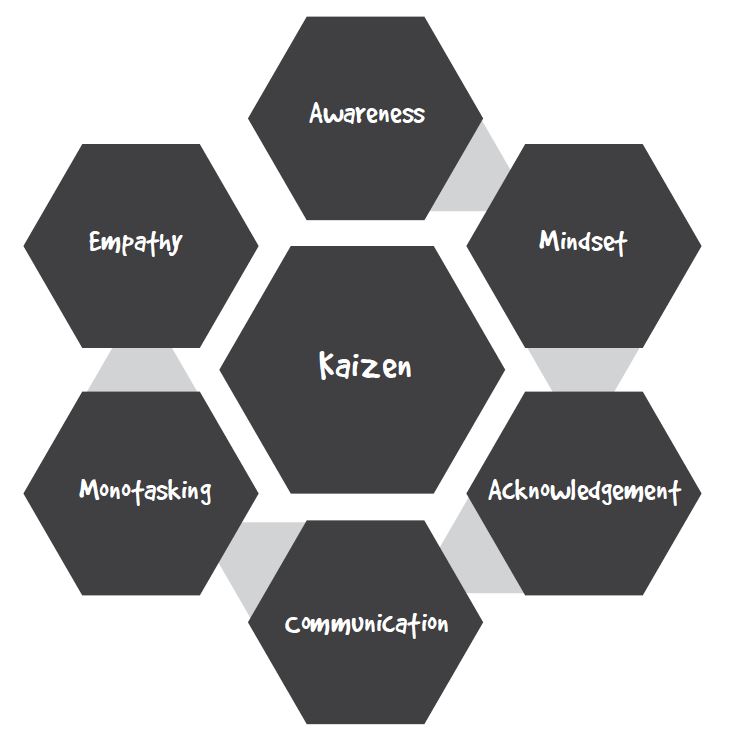 Having effective communication skills is an asset in any career, even cybersecurity. It’s a soft skill that nicely complements technical ones. Having communication aptitude is a must for cybersecurity professionals. Without this cybersecurity soft skill, a lot can go wrong.
Having effective communication skills is an asset in any career, even cybersecurity. It’s a soft skill that nicely complements technical ones. Having communication aptitude is a must for cybersecurity professionals. Without this cybersecurity soft skill, a lot can go wrong.
Poor communication and interpersonal skills are often the roots of cybersecurity incidents. That’s a theme in my book, The Smartest Person in the Room. Unfortunately, some organizations may not see the value in developing communication because they believe cybersecurity is black and white. It’s not. It’s many shades of gray filled with assumptions and a lack of understanding. These things breed when communication isn’t consistent and clear.
The question becomes how to improve communication and make it a priority. In this post, I’ll explain why technical people struggle with people skills, why they need them, and how to develop them in your team.
Why Cybersecurity Professionals Struggle with Communication
My perspective on the struggle comes from years of being a cybersecurity leader as well as research. The points I make in no way are a denunciation of the field. I’m just here to help organizations improve with employees with well-rounded skillsets.
Here are the key reasons cybersecurity teams have a hard time being excellent communicators.
They Are Afraid to Look Vulnerable or Incompetent
One thing that’s necessary for healthy communication is asking questions. Cybersecurity professionals rarely do this for fear they’ll look like they don’t know everything. They’ll make assumptions and fall back to standard ways of resolving issues. That’s not effective in a dynamic and ever-changing landscape with new threats always on the horizon. Fear keeps these people from discovering what they don’t know, which increases risk.
Technical Folks Never Want to Be Wrong
Instead of facing the fact that everybody is wrong at some point, cybersecurity professionals cling to certainty. Except certainty is impossible in the field. This, combined with never wanting to be wrong, prevents healthy communication.
Misconceptions That Technical People Don’t Need to Be Great Communicators
There’s a deep fallacy that exists in technical jobs. The prevailing misconception is that technical people don’t need to be great communicators. They’ll let their technical skills do the talking. But they really need to engage in conversation to improve their technical aptitude and do their job effectively.
Lack of communication sinks cybersecurity. It doesn’t just apply to the technical person’s inability to have productive conversations. They also don’t actively listen when others share their insights, opinions, or other information. They only listen to respond in a defensive posture, so they don’t hear what the other person is conveying. They are only planning their rebuttal.
We’ve touched on the need for cybersecurity communication skills. Next, we’ll dive further into why they are so critical.
Why Do Cybersecurity Professionals Need to Be Effective Communicators?
At a foundational level, cybersecurity professionals need to be effective in their communications because they are part of the problem without it. Data breaches, ransomware attacks, and other cybersecurity failures are often directly tied to poor communication. It’s not that you didn’t have the best technology or strategy. It’s that your people didn’t talk to each other or anyone else!
Here are the other reasons why technical roles need these soft skills:
- It improves transparency in operations, which typically leads to a greater understanding of the threat landscape and greater trust among teams.
- Healthy, consistent communication supports problem-solving. That’s a big part of a technical person’s job, and teams can’t excel at this without proper discussions.
- Good communication builds trust and respect among teams, and that’s essential for their ability to solve cybersecurity problems.
- Soft skills allow people to be more adaptable to change, and cybersecurity is full of that. New people and threats come into the ecosystem routinely. Without flexible communication skills, adaptability remains low.
Current Communication Styles Are Often Off-Putting
Some of your cybersecurity employees may be talkers. Again, that doesn’t make them great communicators. The style they use is often off-putting and aggressive. They like to use a lot of jargon, which doesn’t mean anything to people outside their technical bubble.
They approach communication in this way because it makes them seem superior. It also covers up their lack of comprehension. The strategy is to make communication so technical and abstract that non-technical people will simply defer to them and end the conversation.
This type of speak can also impact how technical people work together. Because cybersecurity is so broad, there are many roles, and they all have their own “language.” As a result, communication failures happen here, too.
When they learn these soft skills, it can change the dynamic completely. However, communication isn’t just about what you say. It also includes body language and nonverbal cues. Those are just as critical as words.
The 7-38-55 Theory of Communications
Mehrabian’s 7-38-55 Theory of Communication highlights that it’s more than just words. The principle states that communication is 7% word choice, 38% tone of voice, and 55% body language.
This is an important concept to share when helping people evolve their communication styles and how they interact in conversations. It can also make them more aware of their tone and body language, which may be causing a barrier. Awareness is the place to start when you begin to navigate communication skills.
Such a theory also taps into technical minds. Communication isn’t just some soft skill. They can recognize its power in influencing how they work and why it could mitigate risk.
Once you have more awareness, you can begin implementing plans to improve communication. The process will take time and commitment. What you get in return is well worth the work.
How to Improve Cybersecurity Soft Skills
We’ve looked at the why and how of communication failure. Now it’s time to talk about how to fix the problem. That’s not an easy road because you’re up against a resistance to change. That resistance often consists of your people being unaware of the communication issues.
Thus, they have to become aware before they can work toward adapting behavior.
Encourage Self-Awareness
Technical people have to get out of their own way, so to speak. They need to be self-aware of how they communicate and why it’s an issue. This requires introspection and a new perspective.
In The Secure Methodology, the framework from my book, Awareness is the first step. In that chapter, I offer multiple ways to help your people through this transition.
Demonstrate the Importance of Communication
If you want your team to be better communicators, you need to make it a priority and lead by example. If there are specific examples you can point to that were communication breakdowns and the consequences, it’s no longer this intangible thing. Now it’s in front of them, and that’s impactful to those that are more logic-based in their thinking.
Champion Active Listening
Technical people who master active listening perform much better than those that don’t. In every conversation we have, we may hear the words but not really absorb and comprehend them. It goes back to the earlier notion of people just listening to prepare their response.
Providing guidance on how to listen actively and exercises can make a difference. As with any change, your team has to be willing and able to adapt.
Make Perspective Key to Communicating
Perspective is another challenge in communication. Often people have no way to see anything other than from their own eyes. That impacts how people collaborate and solve problems.
If you can guide people to open up their perspectives, better communication is more likely. In my book, I spend a bit of time talking about perspective and the best ways to approach it.
Tap into Their Motivation
Everyone has different things that motivate them to change (or not). If you can understand their motivation and make it part of their awareness, communication will improve. It can also help people think with their hearts and minds. Motivation doesn’t have to be altruistic for this to work.
Coach People to Be Flexible
Being flexible and adaptable is critical to becoming a successful communicator. Technical folks are usually either of these. However, that doesn’t mean they can’t be, and it will serve them well in a dynamic landscape like cybersecurity. You can coach your people to be more agile with the right strategy. You’ll find tips and exercises to do this in my book.
Through exercises and the development of soft skills, your team can embrace flexibility. When they do, it can be a turning point in their success and performance.
Help Your Team Master Cybersecurity Soft Skills
Setting your cybersecurity team up for success depends a lot on their communication soft skills. If they hone and develop these, they’ll be better at their job and more engaged. It’s also a skill that can have a profound impact beyond their career.
There will be challenges in evolving people. The exercises, tips, and strategies presented in my book, The Smartest Person in the Room, can help. Get your copy today to start the journey.



